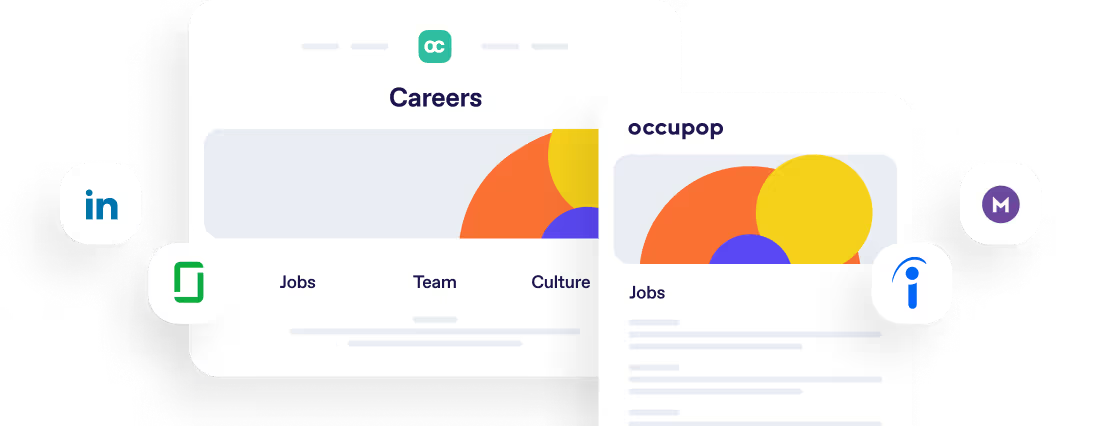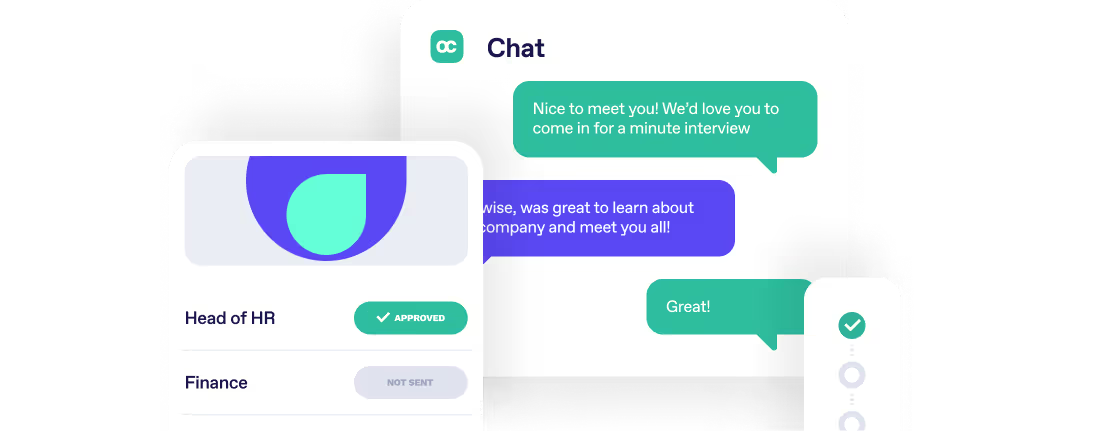How to Upskill in Recruitment Marketing as an HR Professional



It has brought about the need for recruitment to become more like marketing and capture the attention of top talent in different ways than just job posting.
Integrating marketing into the recruitment function can give companies a competitive edge when attracting the best candidates as well as effectively promoting your employer brand. But many HR departments don't have the capacity or skill set to carry out this function, therefore, we have collated a list of courses you can take to help you bring your marketing skills to the next level.
If you are new to recruitment marketing and looking to create a strategy as well as upskill, check out our blog ‘how to create a recruitment marketing strategy without being a marketer’ here.
What marketing areas should you upskill in as a HR professional?
Upskill in social media & professional networks for HR
Social and professional networking sites are by far the best avenue to use to promote your employer brand and attract passive candidates, why? Because that’s where they are! In fact, employers believe that social media marketing will be the most in-demand HR skill this year (CareerArc).
It is important to remember that social & professional networks are not to be used just as job posting engines but more brand-building platforms, communication tools and ways to target your ideal audience. But how do you build your knowledge on using these platforms from a content driven perspective?
The sites themselves offer in-depth educational courses, in particular, LinkedIn for business, Facebook for business (which also covers Instagram) and YouTube all offer excellent courses and tips on using their platforms, all for free. We recently created a blog that looks at improving your LinkedIn company page which you can read here.
Udemy, though not free, offers an extensive range of online courses, generally at a heavily discounted rate. They offer courses on individual platforms and overall general social & professional network marketing.

Upskill in SEO for HR
SEO should be top of mind when it comes to various areas of HR focus; job descriptions, careers pages, social & professional networks and online advertising. This is because when you create content that is searchable, your ideal candidates will find you. Much like anything else in this digital world, most people start looking for something by ‘googling it’. You want to create content that answers the questions your ideal candidates have.
SEO is an ever-evolving topic and one you can never really complete but continuously learn about and adapt according to trends. This is true for myself as a pure marketer and therefore I rely on experts in the field to educate me on the latest changes in SEO. Brian Dean of Backlinko is an excellent example of this, he regularly carries out data research and provides helpful, actionable insights on the topic, you can find an example here. SEO software tools like Moz and MarketMuse also have a wide range of resources that can help you to upskill and gain a better understanding in this area.
INSERT-CTA
Upskill in web analytics for HR
Data is crucial these days as it helps us make more informed decisions in every area of business. In HR, hiring analytics can analyse metrics such as: time-to-hire, CV source and candidate drop-off rates. If you are investing in recruitment marketing, you want to see your return on your investment and glean what’s working and what isn’t, helping you become more tactical in your strategy. Web analytics for HR looks at the careers page on your website, providing data on where your traffic is coming from and the behaviour of candidates on your site. Web analytics also provides insights on traffic that came from social & professional networks but for more in-depth metrics on your campaigns from these sources, it is worthwhile using the platforms directly. The courses in point 1 cover how to go about this.
Google Analytics is the ultimate tool to capture and analyse the results of your recruitment marketing efforts on your careers page*. The Google Analytics Academy offers various courses of varying depth to help you understand and decipher the data on your site. I would suggest creating a list of areas you would like to analyse over time. Here are some of the top areas I would focus on:
- Channel Acquisition: where your traffic comes from
- Demographics: information on your users i.e. age, gender etc.
- Careers landing page behaviour: the level of retention of your site i.e. time on page, bounce rate etc.
- User flow: how people interact with your website i.e. other pages they view
- Goals: return on investment achieved i.e. applied for job or filled in application of interest
- Events: engagement with the content on your site i.e. watched video, click button
Start with the basic course and work up to advanced. There is no need to complete the additional courses in the academy as they are directed more towards e-commerce and attribution.
The best way to report on your data is to use a separate reporting tool that connects to Google Analytics. If your company uses marketing software, like Marketo or HubSpot, they will have reporting features that pull your data from Google Analytics and present your findings in a more consumable format. These software have platform training courses to help you pull reports accurately. If your company doesn’t have marketing software and you are keen to create presentable reports, a tool like Agency Analytics is an economical alternative and lets you choose what areas you want to report on.
* You will need to gain access to your Google Analytics account, speak to your marketing team or webmaster for access.

Upskill in other areas of marketing for HR
The areas above cover the most important training and courses needed for any HR professional to be well-equipped in recruitment marketing. However, there are some other areas of marketing that are beneficial to HR professionals and can be utilised to increase candidate engagement, improve your employer brand and attract the best candidates.
- Content marketing: for blogging, guides, social posts and job descriptions, carrying out a content marketing course will stand to you greatly. HubSpot Academy offers an excellent introduction to content marketing. If you do not have HubSpot you will need to sign up as a single user, which is free.
- Email marketing: emails are essential for candidate experience and communication. An applicant tracking software should offer you automated emails but email marketing lets you go one step further, giving you the ability to send relevant marketing collateral to candidates on an ongoing basis and help to keep passive candidates engaged with your brand. Mailchimp is the best for individuals and small businesses, they offer excellent insights and training on using email marketing and the platform itself.
- Design: If you don’t have the resource of a designer but you want to promote your brand and jobs in an attractive and professional manner, Canva is an excellent, free design tool that is extremely easy to use. They offer resources and training courses so you can get the most from the platform.
How to upskill in all areas of marketing for HR
If you have a genuine interest in the subject or the current pandemic has left you with the time to upskill completely in the area, there are free, low-cost and paid courses that can help you become a marketing pro.
- HubSpot Academy: As mentioned above, though beneficial, your business doesn’t need to be using HubSpot to utilise their courses. They offer a wide range of courses and certificates that cover all aspects of marketing, the only drawback is they understandably focus their learnings on using HubSpot. The platform itself is easy to use and has a free version should you want to manage your recruitment marketing in one place.
- Udemy: Udemy offers both in-depth subject-specific courses and broader marketing courses. Though paid, they generally offer heavily discounted courses and are impartial to any platform which gives you a more well-rounded approach.
- Digital marketing institute: the DMI offer professionally accredited courses in digital marketing. These courses are paid but cover all areas of digital marketing and require an examination for completion. Once certified, this can be included on your CV. The most popular is the Professional Diploma.
INSERT-LINE
What is Occupop?
Occupop is a powerful hiring tool that connects people, creating strong teams and builds long-lasting relationships. Our dynamic features put the power in your hands, allowing you to easily engage with the best candidates and manage the entire process on one smart recruitment solution. Check out how it works here.
Summary Points
How to upskill in recruitment marketing as an HR professional
- social media & professional networks: the sites themselves offer excellent, free training courses and tips. Udemy is also a great low cost alternative.
- SEO: this is an ever-evolving topic and therefore it is most effective to follow industry experts like Brian Dean. SEO software like MOZ also offer great insights.
- Web analytics: Google Analytics is the ultimate tool for web analytics. Google Academy offers extensive training.
- Other recruitment marketing areas worth learning: Design, content writing and email marketing.
- Full marketing courses for HR professionals: HubSpot academy, Digital marketing institute and Udemy all offer extensive courses covering all aspects of marketing.
Simple. Beautiful.
Recruitment Software.
HR updates sent straight to your inbox
You might also like...


Manage your entire hiring process simply, from engagement to management, hiring and onboarding







Simple. Beautiful.
Recruitment Software.
Recruitment Software.






